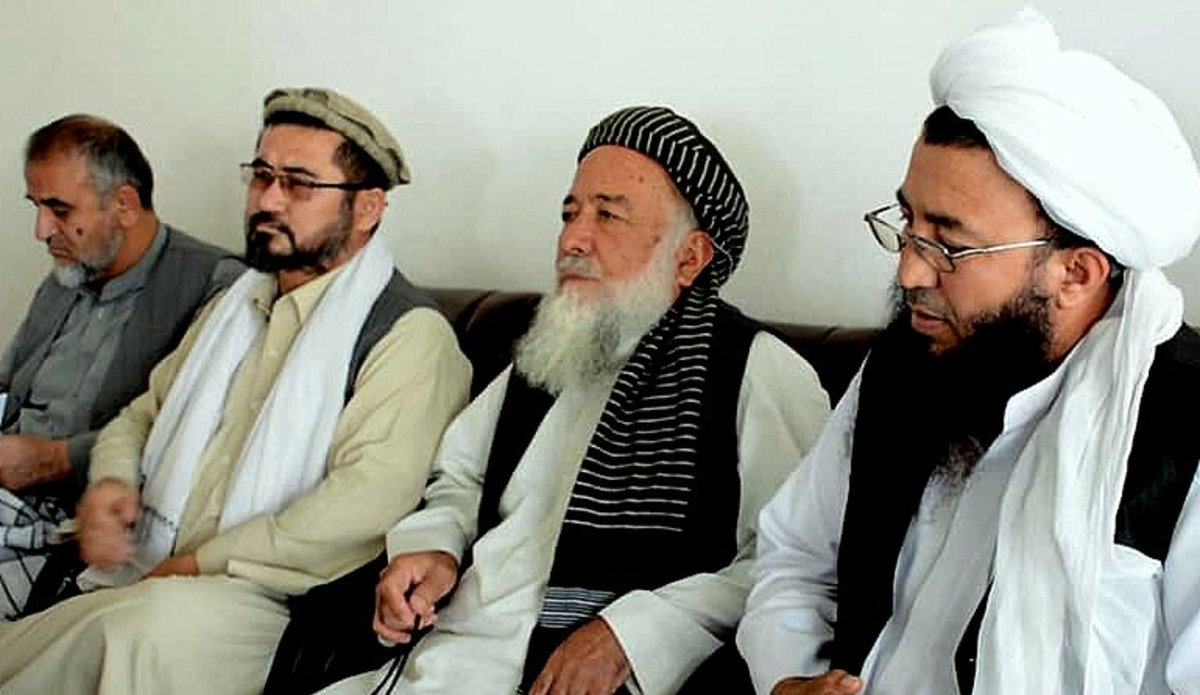Community leaders in Afghanistan’s northeast gather to discuss prospects for peace
KUNDUZ - At two televised, UN-backed events in Badakshan and Takhar, religious leaders, rights activists and other community leaders came together to discuss local peace initiatives and to strategize on ways to build community cohesion.
The events, organized by UNAMA’s Kunduz regional office, took place in the provincial capitals of Taloqan and Faizabad, where those gathered spoke about the impact of the conflict on their lives and the important role communities can play in building social cohesion as a counter to violence.
In Takhar, Provincial Peace Committee Chair Mohammad Hassan called for unity among all communities and for full support to any peace initiatives. “Let’s work for social cohesion to strengthen national unity and build trust among all parties and ethnic groups,” he said. “We must say no to war and to violence.”
In Badakshan, religious scholar Mawlawi Mohammad Yusuf Mutawakil stressed that religious leaders are vital to peace in Afghanistan. “Parties to the conflict should engage religious leaders in any peace negotiations so that peace in Afghanistan can be sustainable and stable,” he said.
In discussing the role of Afghanistan’s religious scholars, event participants said that engaging them in conflict-resolution is essential so they can disseminate specific messages about peace.
Afghanistan’s religious scholars, known as Ulema, are respected community leaders often exerting influence on the decisions of individuals and communities. Their role in promoting peace and reconciliation has been widely recognized as essential.
Those speaking at the events in Badakshan and Takhar encouraged communities in Afghanistan’s northeast, as part of their ethical, social and legal obligations, to play a role in building social cohesion, to support local conflict-resolution initiatives and to raise awareness about the development benefits that come with lasting peace.
The discussions, which were recorded and subsequently televised by local media outlets Mah-e-Naw and Pamir TV to audiences estimated at 800,000 people in and around the two provincial capitals, were part of a UN-backed series on peace-building in the Afghanistan’s northeast region.
The Badakshan and Takhar events are among many other similar programmes and initiatives resulting from UNAMA reaching out to a range of groups across the country to create spaces, both physical and on social media, for them to come together and discuss issues that are of critical importance to them, and to strategize on the best way forward.
At almost every UNAMA-backed event, local media partners not only record the discussion and debate for later rebroadcast, but also create new programmes around the issues that are raised, extending the discussion and creating new opportunities for local voices to be heard on issues such as peace, reconciliation, government transparency, human rights and rule of law.
In accordance with its mandate as a political mission, UNAMA supports the Afghan people and government to achieve peace and stability. UNAMA backs conflict prevention and resolution, promoting inclusion and social cohesion, as well as strengthening regional cooperation. The Mission supports effective governance, promoting national ownership and accountable institutions that are built on respect for human rights.
UNAMA provides 'good offices' and other key services, including diplomatic steps that draw on the organization’s independence, impartiality and integrity to prevent disputes from arising, escalating or spreading. The Mission coordinates international support for Afghan development and humanitarian priorities.
 UN
UN







